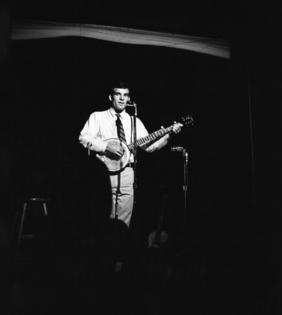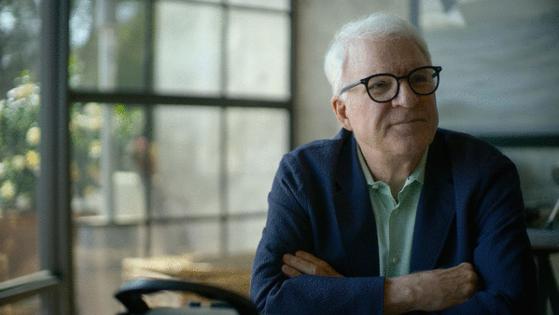Review: 'Steve! (Martin)' a documentary that is more than celebrity image management
Published in Entertainment News
The barrage of celebrity documentaries that have arrived in the wake of (and seemingly inspired by the success of) 2020’s “The Last Dance” tend to be exercises in image management. Unlike the dishier genre of celebrity memoir, these are scrapbooks for the screen. “Steve! (Martin) A Documentary in 2 Pieces” on Apple TV+ avoids some of those pitfalls better than most.
Not entirely. Director Morgan Neville dutifully films Martin and collaborator Harry Bliss as they work on a 2022 memoir that tells the story of Martin’s career through cartoon anecdotes, and these moments serve no other purpose than to advertise the book itself.
But as a project, “Steve!” has more in common with Judd Apatow’s absorbing multipart “The Zen Diaries of Garry Shandling” from 2018. Neville divides the documentary into two 90-minute halves. The first part delves into Martin’s formative experiences and his career as a stand-up, and he appears only in archival footage or voice-over. In the second part, he’s on camera and we see him in the present day, ruminating about his many reinventions — movie actor, screenwriter, playwright, musician — as well as late-in-life fatherhood.
He is most introspective when describing the evolution of his stage act. If comedy is about building and releasing tension through setup and punchline, “I thought, what if I created tension and never released it?” That would mean “the audience would eventually have to pick their own place to laugh.”
We see Martin on stage wearing what would become his trademark prop — an arrow through the head— and he turns to the audience: “Do I look stupid?”
“It was aggressively stupid,” says fellow comic Martin Mull. “And aggressive stupidity, you can’t ignore it.”
Though Martin first adopted the more scraggly look of the late ’60s, it never really fit. He says everything changed when he cut his hair and put on a suit: “The act looked juvenile. That’s why it helped when my hair turned gray a little bit. You always had to think that a grown man was doing this.”
This was also how Martin distinguished himself from his peers. So much comedy in the ’60s and ’70s was political. Martin went in the opposite direction and he frames it as a desire to do something different. But you also wonder if there’s an aversion to getting his hands dirty. The film doesn’t touch on this directly, but later, when he and longtime friend Martin Short are going over material for an upcoming tour, Martin shakes his head “no” at one joke: “We don’t want to get that political.”
“Well, we have to get a little political,” Short says.
“Oh, that’s right,” Martin replies drolly, “you’re trying to retire.”
...continued
©2024 Chicago Tribune. Visit chicagotribune.com. Distributed by Tribune Content Agency, LLC.










Comments